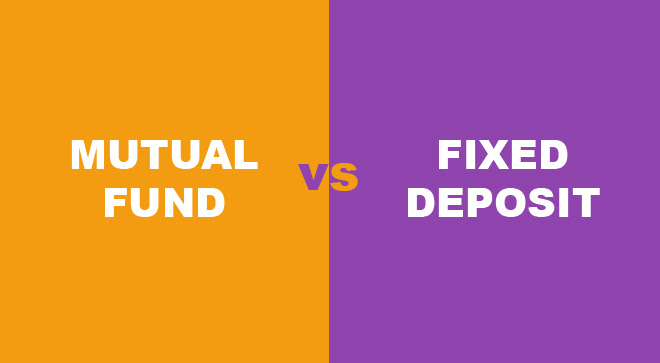Fixed deposits continue to be the most popular asset class with investors, because of the security they offer. Currently, most FD providers offer an interest rate of 6%–7%, with some financial institutions offering up to 8.1%. At present, a one-year fixed deposit earns a return of 6.25% on your investment.
An arbitrage fund is an equity-based mutual fund that leverages the price difference in the cash and derivatives market to earn returns for you. These funds may be less risky compared to equity, but don’t guarantee returns either. So before choosing any one you should be compare the Fixed deposit and mutual fund investment.

Take a look at 5 things that will help you choose which of the two is best for you.
Arbitrage funds work towards exploiting the variation in the price of a stock between the cash and derivative markets, or between equity listed in BSE and NSE. Let’s assume that the price of a stock is quoted at Rs.50 per unit in the cash market, while the price for the same stock in the future’s market is Rs.51.
Now, the fund will buy the stock in cash market to fulfil the demand in the futures market. This way, your investment remains safe and earns returns at the same time.
Arbitrage funds operate in volatile markets and capitalise on differences in prices of various securities. When the market conditions are not ideal for gains from arbitrage, the money goes into short-term debt funds and/or liquid investments. This helps the instrument ensure earnings for you. This is why arbitrage funds have earned a reputation for being safer than conventional equity investments.
Arbitrage funds are categorised as equity-based investments from a taxation perspective. Therefore, you don’t have to pay any tax on long-term gains. Long-term gains are gains made by holding an equity fund for more than one year. For short-term gains, which are made within a year, you would pay a flat rate of 15% as tax. In case of fixed deposits, you can claim up to Rs.10,000 as a deduction. Your earnings beyond this amount, are taxable.
Over the past few years, there has been excitement about arbitrage funds because of the returns they offer. But, remember that they are high-risk, as they do not offer a fixed return. On the other hand, they are a good choice if you are looking to invest with the aim of beating inflation. So, only opt for them when a strong risk appetite backs your interest for a high-yield investment.
There is no doubt that fixed deposit investments are the safest investment option. But, given the prevailing rates, you must take measures to ensure that you get the best interest rate possible to make fixed deposits (FD) a viable investment option. If you are looking for the best interest earnings on fixed deposit investment, invest with Bajaj Finance. They offer higher returns on fixed deposits with added flexibility of tenor and the investment amount.

Arbitrage mutual funds are more secure than a pure equity investment as they make short-term gains from price distortions. But, if safety is your ultimate goal, short-term fixed deposits are the ideal choice. They are also an ideal way to facilitate capital formation, especially for early-stage investors.
With NBFCs also accepting fixed deposits and offering better interest rates than traditional banks, research your options and find the ideal financial institution to secure your savings.







Leave a Reply: